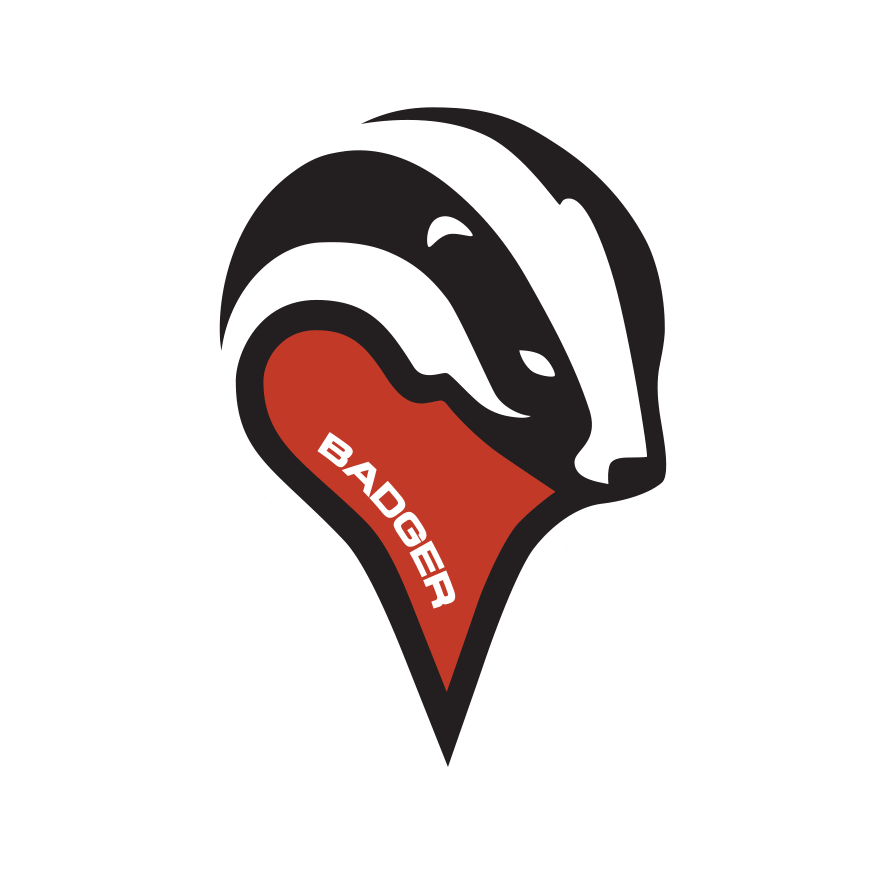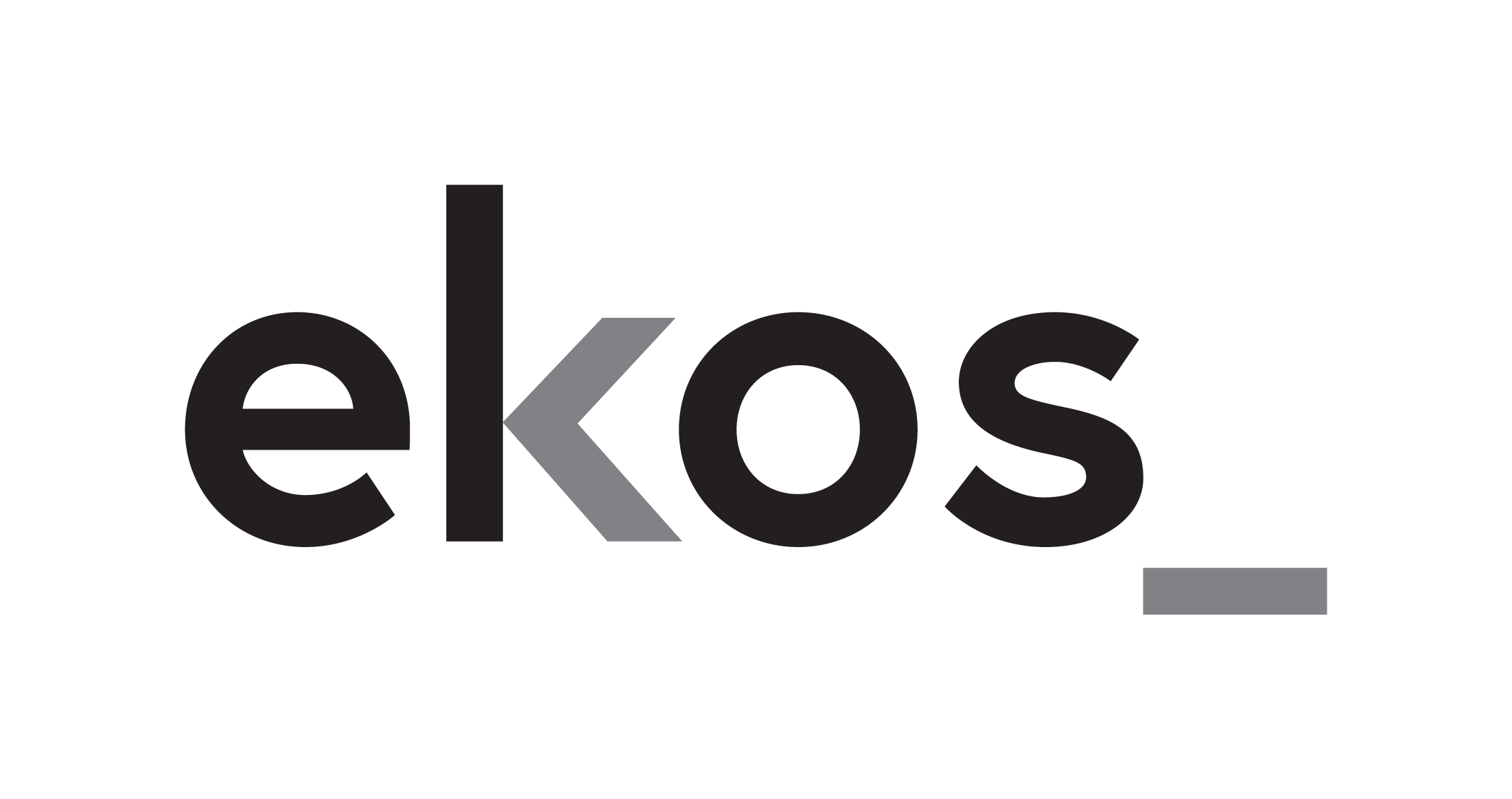Yes, most brewery software can be accessed from numerous devices and platforms. This is possible since many brewery software vendors offer cloud-based solutions, which means that data is stored on remote servers and accessible from any location with an internet connection. Furthermore, many software suppliers offer mobile apps or adaptable designs for ease access across multiple platforms. This enables brewers to manage their operations efficiently while on the go, using any device or platform.
List of Best Brewery Software
Badger Maps is the essential solution for Field Sales Representatives. Our platform simplifies territory management by visualizing customer data, empowering reps to take decisive action towards meeting their sales targets. Through optimized schedulin...Read More Badger Maps
ProcessPro is a ERP software designed for the specific needs of small and medium-sized businesses and agencies. Perfect for Mac users, it offers a solution with features like CRM, document management, quote management, safety management, and reportin...Read More ProcessPro
Vicinity Chemical Software is a all-in-one solution designed for Agencies and Enterprises in the chemical industry. Running on Windows, it streamlines all processes such as Quality Control, Recipe Management, Order Management, Product Lifecycle Manag...Read More Vicinity
Meez Culinary Solutions is a software platform for culinary professionals. Our innovative technology transforms recipe content, including videos and images, into a dynamic and interactive database. With Meez, users can easily access and utilize a vas...Read More Meez
EzyWine solution for wineries. This comprehensive software makes inventory management, production tracking, and sales integration a breeze. Its intuitive interface and advanced features streamline operations, ensure regulatory compliance, and provide...Read More EzyWine
Drink-IT CRM is a beverage management solution that streamlines operations and boosts efficiency across your entire value chain. Utilizing the power of Microsoft Dynamics 365 Business Central, this innovative software offers customizable tools tailor...Read More Drink-IT CRM
WineMS is a cloud-based platform designed for managing all aspects of your winery, from the vineyard to the final product. This comprehensive software seamlessly integrates farm operations, production processes, and sales, providing precise and effic...Read More WineMS
BrooDoo: solution for managing your brewery. Keep track of brews, transfers, and packaging events with ease. Seamlessly integrate with popular accounting software like MYOB, Xero, and Vend. You can rest easy knowing that product traceability is cover...Read More BrooDoo
Iconic Brewery Management System is the most comprehensive solution for enhancing the efficiency of your brewery operations. With our all-encompassing software, you can effortlessly keep track of inventory, schedule production, and analyze sales in r...Read More Iconic Brewery Management System
BrewPlanner: is the solution for craft breweries. Created by seasoned brewers, it streamlines and simplifies every aspect of the brewing process. From material planning to final product reporting, BrewPlanner offers a user-friendly interface and robu...Read More BrewPlanner
BrewMan is a management solution tailored for breweries and distilleries. Boasting a worldwide customer base of 300, this cutting-edge cloud-based platform provides full access to its impressive features at a cost-effective rate of $90 per concurrent...Read More BrewMan
DAQFactory is a SCADA software designed for Agencies and SMEs. It is compatible with Windows and offers a complete set of features including PID control, alarming, networking, data logging, and graphing. With DAQFactory, you can efficiently manage an...Read More DAQFactory
Ekos is a software created exclusively for craft beverage makers. From inventory management to sales and accounting, it streamlines the entire process to enhance efficiency and boost profits for breweries, wineries, and cideries. With a proven track...Read More Ekos
Unleashed is cloud-based platform that simplifies business processes and increases productivity. Its advanced inventory management software offers a comprehensive solution for enterprises. With seamless integration with top applications, Unleashed ma...Read More Unleashed
When I Work is an efficient and user-friendly online scheduling solution specifically designed for businesses in the coffee, restaurant, healthcare, and education industries. This software streamlines scheduling processes and enhances collaboration b...Read More When I Work
Brewtarget is a Brewery Software designed for Enterprises, SMEs, and StartUps. Our software offers complete solutions for Web and Android, streamlining the management of your brewing process. With Brewtarget, you have full control over your recipes a...Read More Brewtarget
Learn More About Brewery Software
- What Is Brewery Software?
- What Are The Recent Trends In Brewery Software?
- Benefits Of Using Brewery Software
- Important Factors To Consider While Purchasing Brewery Software?
- What Are The Key Features To Look For In Brewery Software?
- Why Do Businesses Need Brewery Software?
- How Much Time Is Required to Implement Brewery Software?
- What Is The Level Of Customization Available In Brewery Software?
- Which Industries Can Benefit The Most From Brewery Software?
- Conclusion
What Is Brewery Software?
brewing software encompasses a variety of technology tools and systems created expressly for use in the brewing business. These software solutions are designed to automate and optimize a variety of brewery processes, including production, inventory management, sales, and distribution. One of the key advantages of brewery software is its ability to centralize data and automate procedures, freeing brewers to concentrate on producing high-quality beer rather than being bogged down by manual processes.
This can considerably improve efficiency and output, resulting in increased profitability for breweries. Brewery software typically includes capabilities such as recipe administration, batch tracking, quality control, and reporting. These capabilities allow brewers to keep their products consistent, track ingredients and inventory levels, and ensure quality control requirements.
In addition, brewery software frequently connects with other systems, such as accounting software and point-of-sale systems, to provide a complete picture of the brewery's activities. This simplifies financial management and enables real-time tracking of sales and inventory. When evaluating various brewery software solutions, it is critical to seek for a solution that is tailored to the brewery industry's specific requirements.
Breweries can benefit immensely from features such as keg tracking and compliance management, which help them comply with industry laws. Furthermore, it is critical to select a software provider who provides outstanding customer service and regular updates to ensure that the program continues to suit the brewery's changing requirements.
What Are The Recent Trends In Brewery Software?
Brewery software is a quickly expanding subject, with innovations and updates being released on a regular basis to satisfy the industry's changing needs. As a potential buyer, you should stay up to date on the latest trends in brewery software so that you can make an informed purchasing decision. One of the most significant recent trends in brewery software is the growing usage of cloud-based solutions.
Breweries can now access their software and data from any place, making remote operations more manageable. Furthermore, cloud-based software frequently provides greater flexibility and scalability, allowing brewers to rapidly modify their software to meet growth. Another trend in brewery software is the integration of many functions into a single platform.
This means that rather than employing various software packages for functions like inventory management, sales tracking, and accounting, brewers may expedite these processes by implementing a single comprehensive software solution. This results in higher efficiency and smoother operations. There is also a rising emphasis on data analytics and business intelligence in brewery software.
Breweries can make better decisions and find opportunities for improvement by combining data from multiple sectors of the business, such as sales, production, and consumer feedback. This can result in enhanced profitability and sustainability in the long run. In terms of user experience, there has been a shift toward more intuitive interfaces and mobile accessibility.
This enables brewery staff to access and use the software on the road, boosting productivity and efficiency. Furthermore, easy-to-use interfaces make it easier for brewery employees to understand and use the software, avoiding the need for lengthy training. Finally, as craft beers and custom brews have grown in popularity, so has the demand for specialist brewery software tailored to small and independent breweries.
These solutions provide personalized features and functions that cater to the specific demands of craft breweries, hence promoting industry growth. Overall, current trends in brewery software indicate an increased emphasis on efficiency, adaptability, and data-driven decision making. As a buyer, you should evaluate these trends and select a software solution that best meets your brewery's objectives and ambitions.
Benefits Of Using Brewery Software
Brewery software, often known as brewery management software, is a digital application that helps brewers simplify operations, manage inventory, and improve overall efficiency. While traditional brewery administration may entail a mix of spreadsheets, paper records, and manual processes, brewery software provides a comprehensive solution that consolidates all parts of brewery management into a single centralized platform. In this buyer's guide, we will look at the advantages of utilizing brewery software and why it is a good investment for any brewery firm.
1. Streamlines Operations And Improves Efficiency: One of the primary advantages of adopting brewery software is that it simplifies brewery operations and improves overall efficiency. Brewery software, which includes inventory management, production scheduling, and sales tracking, reduces the need for manual data entry and the possibility of human mistake. This not only saves time and resources, but also enables brewery owners to concentrate on other elements of their operations.
2. Tracks Inventory In Real-Time: Brewery software includes inventory management tools that enable breweries to track their components, finished products, and packaging materials in real time. This helps that breweries maintain precise inventory levels at all times, allowing them to make educated decisions about output and sales. Furthermore, brewery software can provide notifications when inventory levels fall below a certain threshold, reducing stockouts and assisting firms in maintaining a consistent supply.
3. Enhances Quality Control And Consistency: Brewery software contains quality control capabilities that assist keep beer output consistent. Breweries may verify that their goods have the desired flavor profiles by tracking ingredients, recipes, and production procedures. This not only promotes customer pleasure, but also assists breweries in maintaining a consistent brand image and reputation.
4. Boosts Regulatory Compliance: Compliance with regulations is an important component of brewery operations, and brewery software can help make this easier. The program can generate reports and track compliance measures including alcohol content and packaging requirements, ensuring that breweries follow all applicable legislation. This not only saves time and effort, but also allows businesses to avoid penalties and keep their licenses.
5. Offers Valuable Insights And Analytics: Brewery software captures and organizes data from all elements of brewery operations, delivering useful insights to business owners. Breweries may use customisable dashboards and reports to examine data and make informed business decisions. This may include discovering popular products, following sales patterns, and assessing profitability. These insights can help breweries improve their operations and boost their profits.
Important Factors To Consider While Purchasing Brewery Software?
When it comes to acquiring brewery software, numerous variables must be addressed before making an informed decision. As the brewery sector evolves and expands, having efficient and effective software in place is critical for operations management, production optimization, and market competitiveness. To assist you in your purchasing process, we have created a list of the key elements to consider when selecting brewery software.
1. Industry-Specific Features: One of the most significant elements to evaluate is whether the software includes features suited to the specific demands of a brewery. These capabilities may include recipe management, batch tracking, inventory management, quality control, and adherence to regulatory laws. Having these features will not only streamline your procedures, but will also ensure that your brewery runs smoothly and meets industry requirements.
2. Scalability: Your brewery's software must be able to keep up with its growth. Make sure to select scalable software that can support your future growth objectives. This eliminates the need for frequent upgrades or the transition to new software as your brewery grows, saving you time and costs in the long term.
3. User-Friendly Interface: Brewery software can be complex, therefore it is critical to select a user-friendly interface that is simple to use and comprehend. This will not only smooth the onboarding process for new employees, but will also make it easier for your employees to use the program on a daily basis.
4. Integration Capabilities: Another important consideration is the software's capacity to integrate with other systems such as accounting, e-commerce, and point-of-sale. This integration will provide a continuous flow of information between systems, improving efficiency and accuracy in tracking and managing your brewery's operations.
5. Cost: Pricing is a critical factor in any purchasing decision. When it comes to brewery software, it is critical to consider not only the initial investment but also any future costs such as upgrades, training, and maintenance. Make careful to purchase software that fits inside your budget and provides a high return on investment.
6. Customer Support: Having dependable and accessible customer assistance is critical when investing in brewery software. Make sure to ask about the degree of customer care provided, such as response time, help channels, and availability. This will ensure that you have the required assistance if any problems or inquiries arise.
7. Reputation And Reviews: Conduct research and read reviews from other breweries that use the software you're considering. This will give you information about the software's performance, dependability, and customer support. You can also request suggestions from other brewery owners in your network. When selecting brewery software, keep these crucial considerations in mind to make an informed purchase that will assist streamline your operations, enhance productivity, and contribute to your brewery's success. Remember to carefully assess your needs and priorities before selecting software that corresponds with your long-term objectives and budget. Cheers to finding the ideal brewery software for your business!
What Are The Key Features To Look For In Brewery Software?
When choosing the best brewery software for your company, it's critical to evaluate the major features that will help you simplify operations, manage inventory, and increase overall productivity. As a professional content writer, I've found the following critical elements to look for in brewery software:
1. Batch Tracking And Management: This tool allows you to track each batch of beer, from raw ingredients to finished product, assuring quality control and regulatory compliance. Look for software that allows you to assign batch numbers, track ingredients and amounts, and add batch-specific notes and labels.
2. Inventory Management: Brewing necessitates handling a wide range of components, packaging materials, and final products. Look for software that includes real-time inventory management, automated reordering, and configurable inventory reports to help you keep track of your stock levels and optimize your orders.
3. Recipe Management: Each brewery's unique recipes are at the heart of its operation. Make sure the software you choose includes a thorough recipe management tool that allows you to create and store recipes, track item usage, and make changes as needed. Bonus marks for software that provides ingredient substitution and scaling options.
4. Sales And Distribution Tracking: If you distribute beer to other areas, you must keep track of sales and distribution figures. Look for software that allows you to track sales, invoice customers, make distribution plans, and track shipments.
5. Taproom And POS Integration: Most breweries feature a taproom or retail facility where consumers can buy and drink beer. Look for software that works flawlessly with your point-of-sale (POS) system, allowing for simple inventory management, sales tracking, and customer data collection.
6. Quality Control: Maintaining quality and consistency is critical for any brewery. Look for software that includes quality control capabilities like sensory analysis, batch comparison, and quality testing management to ensure that your beer meets your expectations every time.
7. Reporting and Analytics: To make informed business decisions, you must have access to precise and detailed data. Look for software that provides customisable data and analytics, such as sales trends, ingredient costs, manufacturing efficiency, and more.
8. Mobile Compatibility: As a brewery owner or manager, you may not always be present at the brewery. Look for software that is mobile-friendly so you can access critical data and make decisions on the fly.
Why Do Businesses Need Brewery Software?
Brewery software is an essential tool for organizations in the beer industry since it provides numerous benefits that assist streamline operations and boost productivity. In this buyer's guide, we'll go over the main reasons why businesses need brewery software and how it may help them enhance their entire operations.
1. Streamlined Production Process: One of the primary reasons firms want brewery software is to streamline their manufacturing processes. Breweries can use automation solutions to easily manage their production schedule, inventory, and quality control. This not only saves time, but it also decreases the possibility of errors and maintains uniformity in the manufacturing processes.
2. Inventory Management: Brewery software also has extensive inventory management functions, which help businesses keep track of their raw materials and completed goods. This improves stock control, eliminates waste and spoilage, and ensures that firms have the necessary materials on hand to meet client demands.
3. Improved Cost Management: Another big benefit of adopting brewery software is that it enables organizations to properly manage expenditures. It delivers real-time data and insights into production costs, inventory charges, and other indirect costs, allowing businesses to make more educated decisions and enhance their bottom line.
4. Order Fulfillment & Distribution: With the growing demand for craft brews, brewery software may help firms manage orders and simplify their distribution processes more efficiently. It enables brewers to track orders, manage delivery, and assure timely and accurate dispatches, resulting in increased customer satisfaction and retention.
5. Compliance & Reporting: Brewery software has tools that assist organizations comply with industry rules and prepare tax returns. It eliminates the need for manual record-keeping while ensuring accurate and timely reporting, saving organizations time and lowering the chance of errors.
6. Marketing And Sales Management: Brewery software contains capabilities for effectively managing sales and marketing efforts. It enables firms to monitor sales performance, analyze client data, and develop focused marketing strategies. This helps firms expand their customer base and enhance sales.
How Much Time Is Required to Implement Brewery Software?
The time it takes to implement brewery software varies based on the software you choose, as well as the size and complexity of your brewery operation. The implementation procedure can last anything from a few weeks to many months. Some software suppliers provide a structured implementation procedure that walks you through each stage of the setup and training process.
This often includes an initial discovery call to determine your brewery's specific requirements, followed by installation, data migration (if required), and customization. The length of the implementation process is also determined by how quickly and efficiently you and your team adjust to the new software and accomplish any required activities. This may entail training, creating user accounts, and entering data into the system.
Smaller breweries with simpler operations may complete the implementation process faster, but larger breweries with more complicated operations may take longer. It is critical to interact with your selected software provider to gain a clear picture of the implementation timeframe and to ensure that you and your team are ready for the process.
Remember that deploying brewery software is an investment that will save you time and streamline your operations in the long term. So, prepare accordingly and set aside adequate time for a smooth and successful implementation.
What Is The Level Of Customization Available In Brewery Software?
Brewery software is an essential tool for breweries of all sizes since it simplifies operations, tracks inventory, and manages finances. One of the most important considerations when selecting brewery software is the level of customization available. Simply said, customization is the capacity to modify software to meet the specific demands and workflows of a brewery. The level of customisation offered by brewery software varies based on the vendor and the software package. Some software may just provide basic customization choices, but others may include more in-depth and comprehensive options.
However, most brewery software provides for some degree of customization to match the unique needs of a brewery. The most typical areas for modification in brewery software are:
1. Dashboard Configuration: The dashboard is the primary interface of brewery software, displaying vital information including sales, inventory levels, and production schedules. Breweries may customize their dashboard by selecting which metrics to display, rearranging the layout, and even adding custom widgets.
2. Data Fields And Labels: Each brewery has a distinct set of data fields and labels for things like beer names, styles, and packaging kinds. Brewery software with customisation capabilities allows brewers to change or add additional data fields and labels to meet their individual requirements.
3. Reporting: Reporting is a vital element of brewery software since it allows you to track and evaluate key indicators. Customization capabilities enable brewers to develop and change reports based on their own data and specifications.
4. Integrations: Many breweries employ a variety of technologies and systems, including accounting software, point-of-sale systems, and eCommerce platforms. Customization options in brewery software provide integration with various systems, resulting in seamless data transmission and workflow.
5. User Access And Permissions: Brewery software with modification options enables the creation of various user roles and permissions, ensuring that only authorized users have access to sensitive data. Overall, the level of customisation possible in brewery software has a significant impact on a brewery's operations and efficiency. Breweries should carefully analyze their individual demands and workflows when comparing the level of customisation provided by different software suppliers in order to select the one that best meets their needs.
Which Industries Can Benefit The Most From Brewery Software?
Brewery software is a powerful tool that may help streamline and optimize operations across a variety of businesses. Whether you own a craft brewery, run a large-scale manufacturing plant, or manage a bar or restaurant, brewery software can help your business thrive.
Here are some of the top sectors that can gain the most from using brewery software:
1. Craft Breweries: Craft breweries are the most frequent users of brewery software. This industry includes tiny, independent breweries that manufacture limited volumes of beer in distinctive flavors and styles. Brewery software is critical for these organizations because it allows them to manage inventories, track sales and expenses, and ensure beer production uniformity. It also aids in recipe development, scaling up manufacturing, and maintaining quality control.
2. Production Breweries: Production breweries are larger companies that make beer in bulk for distribution and retail. Brewery software allows these enterprises to efficiently manage all areas of production, from tracking raw materials and ingredients to scheduling production runs and handling packaging and labeling. This software also aids in compliance and regulatory matters, such as tax reporting and state-specific distribution laws.
3. Brewpubs: Brewpubs are hybrid establishments that combine a microbrewery and a pub or restaurant. Customers can enjoy a variety of beers on tap, as well as cuisine and a welcoming ambiance. Brewery software is essential for brewpubs since it manages both the brewing and hospitality sides of the business. It can help with inventory management, menu planning, and point-of-sale systems, ensuring that operations run smoothly.
4. Beer Distributors: Beer distributors are essential to the brewing industry's supply chain. They deliver and sell beer to merchants and restaurants. Brewery software can assist these organizations handle customer orders, track inventory levels, and optimize delivery routes to ensure effective distribution. It also improves communication and collaboration with breweries, resulting in fast and precise order fulfillment.
5. Retailers And Restaurants: Finally, integrating brewery software can assist beer retailers and restaurants significantly. It enables them to manage inventory and track sales, resulting in more effective restocking and ordering operations. Additionally, this program can provide insights into popular beer varieties and trends, allowing shops and restaurants to tailor their products to customer tastes.
Conclusion
To summarize, the correct brewery software may be a tremendous asset to any brewery, whether it is a tiny craft brewery or a huge production operation. It can help to streamline operations, increase productivity, and provide useful insights for making data-driven decisions. So, before making a purchase, you should thoroughly analyze your individual requirements and conduct extensive research on the various possibilities.
When selecting software, consider affordability, simplicity of use, functionality, and scalability. Consider asking other brewery owners or industry experts for ideas and insights into the finest software for your brewery. With the appropriate brewery software, you can propel your business to new heights and stand out in a competitive industry. So, invest wisely and reap the rewards of a well-equipped and efficient brewery. Cheers to your success!
Brewery Software FAQ's
Can Brewery Software Be Accessed Across Multiple Devices And Platforms?
Is Brewery Software Future-Proof And Adaptable To Emerging Technologies Like Ai, Blockchain Or Iot?
Yes, Brewery Software is designed to be future-proof and adaptable to upcoming technologies such as artificial intelligence, blockchain, and the Internet of Things. It is regularly updated and upgraded to reflect the most recent technological breakthroughs. This means that brewers may keep ahead of the competition by implementing cutting-edge tools to optimize their operations. Brewery Software also provides configurable features, making it adaptable to any new technology that may emerge in the future.
Is There A Free Trial Offered To Assess Brewery Software Before Committing?
Yes, some brewery software vendors provide a free trial period so that consumers can evaluate the product before committing. This helps potential buyers to learn more about the software's features, functioning, and user interface. It is recommended that you use the free trial to confirm that the software suits the unique demands and specifications of your brewery business. Check with the program supplier for more information on their free trial offer.
Does Brewery Software Offer Data Security Features And Meet Regulatory Compliance Standards?
Yes, most brewery software has data security safeguards and complies with regulatory requirements. These features include data storage and encryption, user access limits, and periodic backups. Furthermore, much brewery software complies with requirements such as TTB, FDA, and FISMA. This protects your brewery's data and assures compliance with industry requirements.
Can Brewery Software Integrate Seamlessly With Existing Tools And Platforms?
Yes, brewery software is designed to work easily alongside existing tools and systems. It is highly adaptable and can be combined with accounting software, inventory management systems, online ordering platforms, and other applications. This provides for a more efficient process and eliminates the need for manual data entry. Furthermore, many brewery software suppliers provide integration support and guidance to guarantee that the process runs smoothly and efficiently. This helps brewers save time and boost productivity.


















